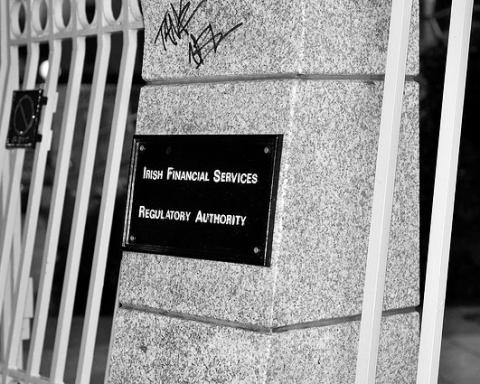Who knew what and when about the Anglo affair?

Who outside of Anglo Irish Bank knew the full details of the Maple Ten business in 2008, and what culpability do they have in relation to it? By Vincent Browne.
Many people reasonably wonder how it is that, more than three years after we discovered what appears to have been illegality in Anglo Irish Bank, nobody has been charged - let alone convicted or sentenced.
It is regularly said that if this had happened in America, a parade of suspects would have done the infamous perp walk in handcuffs by now, much to the delectation of the baying masses.
From what we know about what went on in Anglo Irish Bank in 2008 - certainly in relation to what is known as the Maple Ten transaction – there are serious questions about the legality of what was done.
This Maple Ten business arose from the discovery that Sean Quinn had amassed a secret shareholding of 28% in Anglo Irish Bank through a financial device known as contracts for difference (an arrangement whereby an investor can enter into a contract to buy shares at a predetermined price at some future time).
Former Anglo chairman Seán FitzPatrick and former chief executive David Drumm were flabbergasted to discover this because Quinn was not in a position to complete the contracts. The prospect of such a huge volume of the bank's shares being disgorged onto the market would have ravaged the share price and probably caused the collapse of the institution there and then.
They arranged to stave off the crisis by an arrangement whereby they got ten of the bank's richest customers to buy Quinn's shares with money lent by the bank primarily on a "non-recourse" basis, which meant that the main security the bank had for the huge loans they were giving these rich customers was the shares themselves.
Was this share price-fixing on a grand scale? Did it contravene Section 108 of the 1990 Companies Act, subsection 4 of which says: "It shall not be lawful for a person [in this instance, a senior officer of a company] at any time he is precluded [by other sections of the act, which refer to inside information that would be price sensitive] from dealing in any securities, to cause or procure any other person to deal in those securities"?
Clearly, in this instance, senior people in Anglo Irish Bank caused others to deal in the bank shares at a time when they had information that was hugely price sensitive. Whereas the ten rich customers were probably fully informed about what was happening and were not themselves defrauded - or, incidentally, enriched - other shareholders were certainly materially misled about the true value of the bank's shares at the time and subsequently. Indeed, that was the point of the exercise.
But what is really interesting about all this is not so much the people in Anglo Irish Bank who knew this and who executed the project, but who else knew, and what culpability they have in relation to all of this.
A fascinating insight into this was given in Niall O'Dowd's interview with David Drumm, published in the Sunday Business Post last 27 November, and which has got far too little attention, in my view.
Drumm said: "The Financial Regulator and the Central Bank were in every meeting with me and other directors of the bank throughout 2008."
Referring to that transaction, he said: "That was the solution to a problem, which went to the very destruction of the Irish financial system and hence the government, and through its offices, through the Central Bank and through the regulator, they were pushing the bank like hell to fix the problem."
Were the Central Bank and the Regulator aware of every aspect of the transaction or, as they say, just some of it?
Drumm said they tried several other means of dealing with the crisis, including overtures to other banks and to financial interests in the Middle East, but were left with the Maple Ten option or collapse.
Drumm was asked, who, in addition to the Financial Regulator at the time, knew about what was going on. He replied: "John Hurley was the governor of the Central Bank. I spent a huge amount of time with John. He told me that he was reporting daily to the Minister for Finance [Brian Cowen]."
He elaborated: "They called me day after day after day, to find out how it was going and when we called them up and said we are thinking of doing something with private investors, I then went down and sat with them and explained what we were going to do. 'Let's get this done.' Frankly they were thrilled, chirpy, because the fear factor [of a financial collapse] was just huge."
Asked to clarify whether the Department of Finance and the minister were specifically involved, he said: "Well, based on what John Hurley said, the importance of what was going on was going right to the minister for finance, and most likely the Taoiseach was fully aware of it at the time as well."
If Hurley and others were aware of every aspect of the transaction, then it is a very serious matter. But did they know the full details of the deal? They have suggested that they did not.
Drumm's account has been corroborated by Seán FitzPatrick in various interviews he has done.
So, if this Maple Ten business was illegal, there could be prosecutions.
In any such cases, it would clearly be a significant factor if the regulatory authorities knew about all this in advance.
Image top: stephenhanafin.
